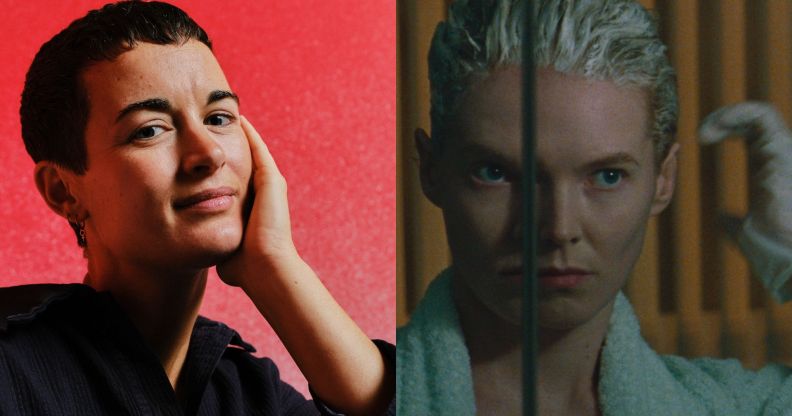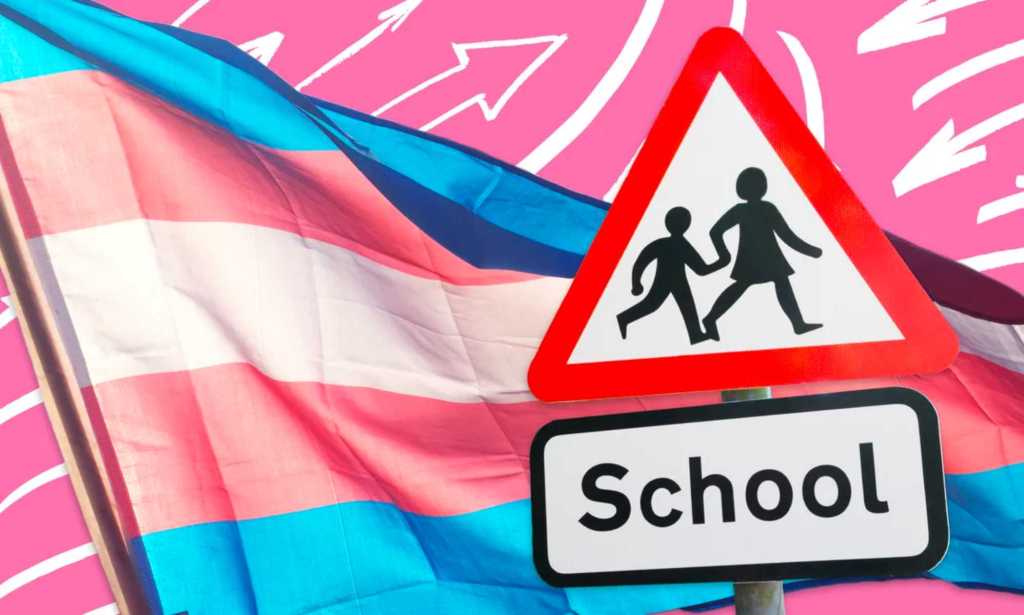Blue Jean director explains how legacy of Section 28 is ‘alive and well’ in 2023

Blue Jean director Georgia Oakley (L) and Blue Jean star Rosy McEwen (R). (Vivek Vadoliya/Altitude Films)
Georgia Oakley, the director behind the award-winning Section 28 film Blue Jean, has reflected on how the legacy of the legislation is “alive and well” in the UK.
Blue Jean stars British actor Rosy McEwen as Jean, a Newcastle-based lesbian PE teacher in 1988, the year Margaret Thatcher’s reviled law came into effect.
The legislation banned schools and local councils from the “promotion” of homosexuality, meaning teachers could not disclose their own sexuality or support LGBTQ+ students.
Jean has to go to great lengths to conceal her sexuality from her students and co-workers, while her girlfriend Viv, played by Kerrie Hayes, lives out and proud.
After Jean spots student Lois (Lucy Halliday) at a lesbian bar she frequents, her world is turned upside down, leaving both her career and relationship on the line.
While 2023 marks 20 years since the legislation was wiped from the statute books, on 18 November 2003, Oakley has explained why the story behind Blue Jean is still pertinent today.
Speaking exclusively to PinkNews, 2023 BAFTA breakthrough recipient Oakley said: “I remember when we were developing the story and were trying to show people that this was not a dead issue. Just because the law had been repealed, it didn’t mean that this issue had gone away.

“The week we had some of our initial meetings about the film, there were protests up and down the UK – when the No Outsiders programme came in – and people were taking their kids out of school.”
The No Outsiders programme was being taught at Birmingham’s Parkfield Community School, in 2019, using storybooks to teach students about LGBTQ+ relationships, leading a vocal group of parents to stage regular protests.
Oakley said that Blue Jean was used to show that “this is not an issue that is going away” and that “the legacy of Section 28 is very much alive and well”.
The Conservative Party has spent much of 2023 attempting to draw up new trans guidance for educators, which was initially expected to prevent transgender pupils from socially transitioning at school and led to some activists dubbing it a new version of Section 28.

However, more recent leaks suggest the guidance, now expected to be published before Christmas, will take “a presumption against” trans pupils changing genders at school, but will enable them to use new names or pronouns and change the uniform they wear.
“As a parent, I also see [Section 28’s legacy] in schools through attitudes of parents or teachers,” Oakley said.
“I see that that is very much alive and well. If anything, people are too blind to the fact that once the law has changed, it doesn’t mean that everything’s just right overnight.
“So, it’s been a strange experience for me, seeing the mirroring of things going on in Blue Jean and people’s attitudes today. But I knew that from the beginning, which is why I wanted to tell that story. I don’t think any of this has gone away.”
Oakley is one of 42 BAFTA breakthrough recipients. The 2023 accolade, supported by Netflix, has been given to “must-watch” creatives working in film, games and television, from across the UK, US and India.
Other recipients this year include Blue Jean star McEwen, The Last of Us actor Bella Ramsey, and Dreaming Whilst Black writer and star Adjani Salmon.
How did this story make you feel?

